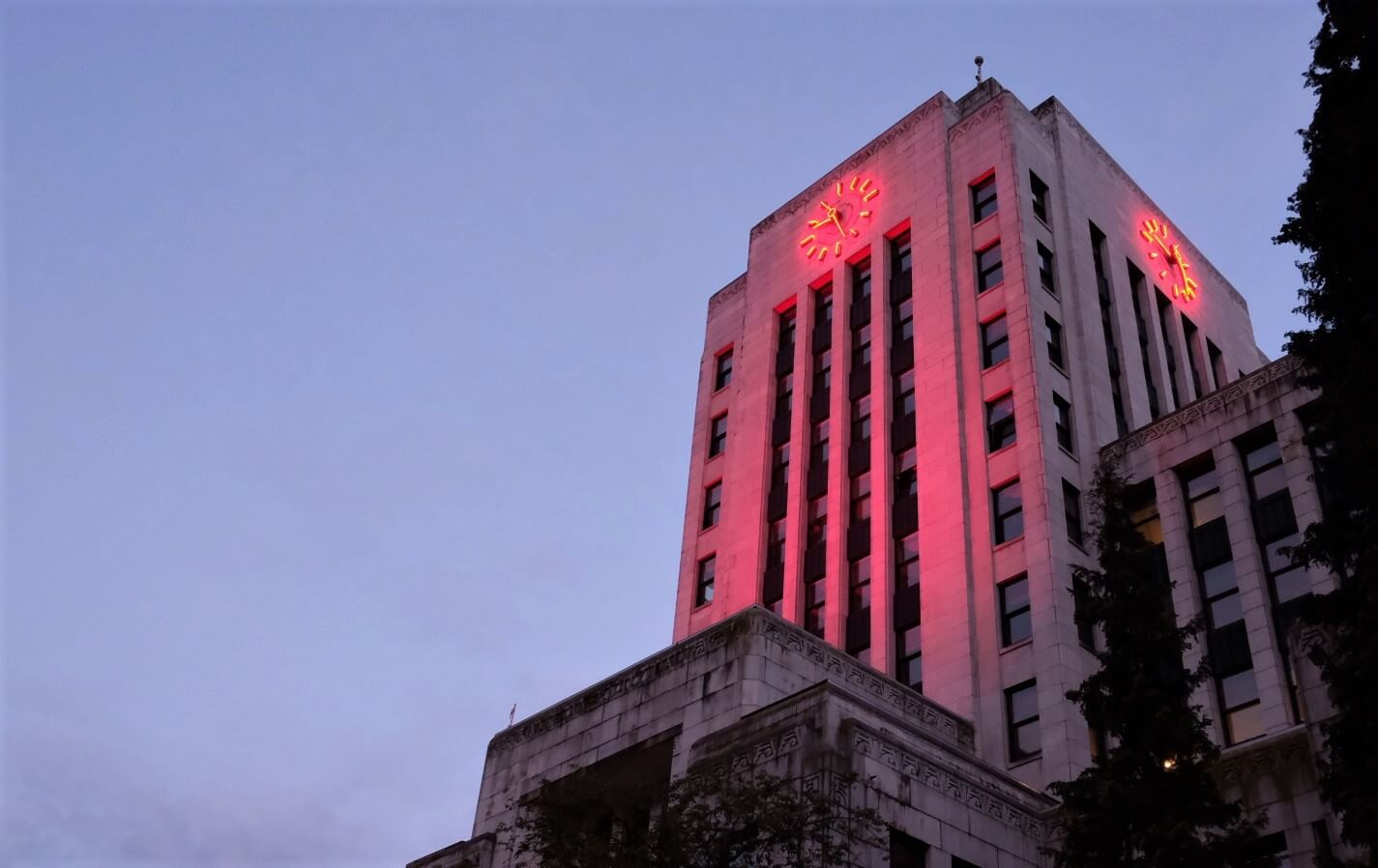
Oct 24, 2022: KEN SIM wins Mayor’s seat; ABC sweeps positions on Council, Park and School Board
The Oct. 15 election dealt a crushing defeat to Vancouver’s incumbent Mayor, Kennedy Stewart. Unhappy with his inability to unite Council on key policy decisions, his left-leaning politics and the way he bad-mouthed those who disagreed with him, and the perceptions that he was both soft on crime and anti-police, the majority of Vancouverites turned their hopes to an individual who has never held office. Ken Sim and his ABC party’s near sweep of seats on Council, School, and Park Board reflected Vancouverites’ enormous appetite for change at City Hall.
Sim, 52, is a businessman and father of four boys. He is the first Chinese-Canadian to be elected mayor of Vancouver, a position dominated by wealthy white landowners and businessmen since Malcolm Maclean took office in 1886. It has taken 136 years for a non-white citizen to win the mayor’s seat.
Voters are now counting on the new right-of-centre mayor and his “super majority” to usher in a more even-handed era at City Hall. You can view the complete election results here.
According to the polls, Sim took many Westside votes, but Colleen Hardwick garnered enough to beat Stewart in Kitsilano, Point Grey, and Kerrisdale. The TEAM for a Livable Vancouver candidate scored 932 votes in the combined advance and election day polls at Dunbar Community, compared with Stewart’s 782. This shows, David Carrigg writes in the Vancouver Sun, that while Sim still dominated, Hardwick likely took votes from Sim.
A major insight gleaned from this election, said SFU professor and urban planner Andy Yan, is there was no divide between the East and West sides of the city. Sim held the lead in many neighbourhoods that included all of South Vancouver, as well as the East Side, West Side and parts of downtown.
Familiar faces to be sworn in
The new Mayor and Council — who will look much the same as the outgoing Council, with a few new faces: six incumbent Councillors along with ABC party newcomers Lenny Zhou, Peter Meiszner, Brian Montague, and Mike Klassen — will be sworn in on Monday, Nov. 7. Crime, safety affordable housing, and running the City more efficiently will be top of mind. A supporter of the Broadway and Vancouver Plans and the subway extension to UBC, Sim is backed by many of the same big developers who supported Kennedy Stewart, including Westbank, Onni Group, Bosa Properties, Bonnis Properties, and Beedie Development. Billionaire Chip Wilson also backed Sim. ABC fundraised $1.66 million since 2019.
The mayor-elect’s first priority will be adding security to the Downtown Eastside (DTES), specifically an additional 100 police officers and 100 mental health workers. It is still early days, but in this interview with CTV, Sim offered few details on how his plan would be accomplished. According to a nurse who works in the DTES, locating 100 nurses in light of severe staff shortages will pose a huge challenge for Sim.
Sim is hoping to create a City of Vancouver satellite office in Chinatown that would also serve the DTES. Sim said: “We will be coming down here on a regular basis. If you want to solve it (the problems in Chinatown and the DTES), you have to understand what’s going on on the ground.” Sim has also promised to hold a mental health summit, with political leaders, health authorities, non-profit agencies, and community members.
Faster Development Permits
Sim campaigned on a plan called a “3x3x3x1″— a new system for development permits that would approve housing renovation applications within three days, townhouse and single-family applications within three weeks, professionally designed multi-family and mid-rise projects where existing zoning is already in place in three months, and high-rise or large developments in one year (down from the current six).
Housing:
ABC’s first promise on housing is to promote more purpose-built market housing. The new Council will study the City’s current “missing middle” strategy and find ways to create more housing for families, (for example, pre-approve standard laneway home designs to speed construction) and look at new ideas to create and expand more affordable housing. On social housing, the party promises to double the number of co-ops over the next four years and increase housing investments consistent with the Consumer Price Index. Sim has also promised to look at building housing for Indigenous people and youth that have aged out of the care system, and adding senior community housing. On the DTES, a 20-year social housing plan has been promised with a pledge to update the DTES area plan.
In Other Election News:
Vancouver residents overwhelmingly approved all three capital budget plan questions listed at the bottom of the voting ballot. In so doing, they authorized the City of Vancouver to borrow up to $495 million in additional funds. This is up significantly from the 2018 election when voters approved up to $300 million. CityHallWatch wonders if voters had time to consider the three questions. Were the questions worded correctly, was there any bias, were voters given sufficient information to understand the questions? And finally, what voting Yes means to the individual resident.
Final Council Meeting
The current Vancouver City Council will meet for the last time this coming Tuesday, Oct. 25, beginning at 9:30 am — and they plan to go out with a bang. You can read the full day’s agenda here.
A highlight of the meeting will be a report and recommendations by a task force on the City’s UNDRIP (United Nations Declaration on the Rights of Indigenous Peoples) strategy. Created a year and a half ago, the task force is made up of members from the Squamish, Musqueam, and Tsleil-Waututh Nations plus City Councillors Adriane Carr, Christine Boyle, Jean Swanson, and Melissa De Genova. Staff will be asked to report back to Council on how the UNDRIP Action Plan can be implemented across all City departments. If approved in a future Council meeting, Vancouver could become the first Canadian city to act on the UNDRIP. This could entail giving back parcels of land to the nations plus other property and tax revenue, appointing Indigenous members to decision-making positions on City boards and cooperating on other City policies.



No Comments